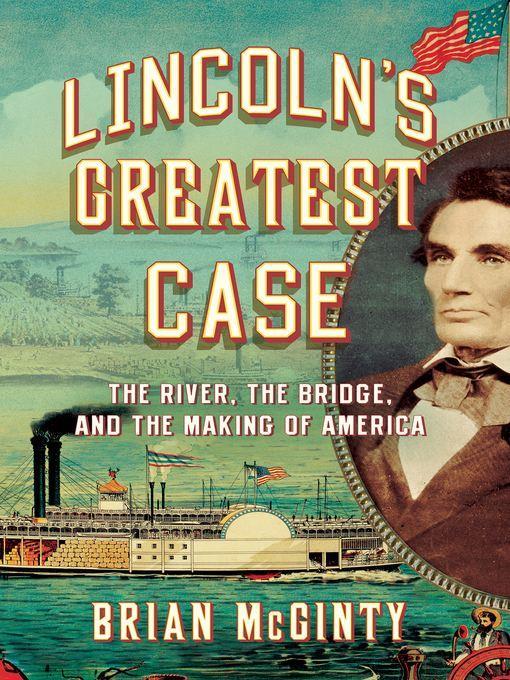
Lincoln's Greatest Case
The River, the Bridge, and the Making of America
کتاب های مرتبط
- اطلاعات
- نقد و بررسی
- دیدگاه کاربران
نقد و بررسی

Starred review from November 3, 2014
Despite a subtitle that suggests excessive hype, McGinty (Lincoln and the Court) makes good on his promise to articulate why a now obscure 1857 trial had much broader significance than one would expect of legal battle over transportation. What came to be known as the Effie Afton case began with the crash of the steamboat of that name on the Mississippi River between Illinois and Iowa. While no one was injured, the collision with a railroad bridge destroyed the boat—which had been transporting cargo and freight valued at $350,000—and its owners sued the company responsible for the construction and placement of the bridge. Abraham Lincoln, who was already a well-regarded lawyer, was hired to assist with the defense. McGinty illuminates the case’s larger issues related to the conflict between two modes of commercial travel (by water and by rail), while also demonstrating how decisions concerning transportation had an impact on the simmering tensions between North and South over slavery shortly before the Civil War erupted. This is a masterful popular history that places its focal point in a richly detailed wider context and will get readers interested in Lincoln’s legal career.

January 1, 2015
Distinguished Lincoln scholar and lawyer McGinty (The Body of John Merryman: Abraham Lincoln and the Suspension of Habeas Corpus) makes a powerful case that Lincoln's involvement in arguing for the right of a railroad company to build a bridge over the Mississippi River, in the famous Effie Afton trial when a steamboat crashed into a bridge, reflected Lincoln's commitment to the transportation revolution that was opening the American West and promising to bind the nation together. The eventual "victory" of the railroad over the steamboat shifted commerce to an east-west flow that directed American growth and secured the West for the North in sectional ties. With detailed descriptions of river and railroad traffic, commercial interests, law, courtroom strategies, and the sectional politics of transportation policy, McGinty provides valuable context unavailable anywhere else and a deep understanding of the dynamic and contested legal, commercial, and political world that informed Lincoln's support for westward expansion and economic development, shaped his ideas on law, and honed his skills as a lawyer. VERDICT McGinty's book gives us the best accounting of Lincoln, the lawyer, to date. Highly recommended. [For more on Lincoln see Randall Miller's Collection Development feature, "Lincoln, 150 Years On," p. 46.--Ed.]--Randall M. Miller, St. Joseph's Univ., Philadelphia
Copyright 2015 Library Journal, LLC Used with permission.

























دیدگاه کاربران